Advertisement
Two thirds of patients responded to CAR T-cell therapy
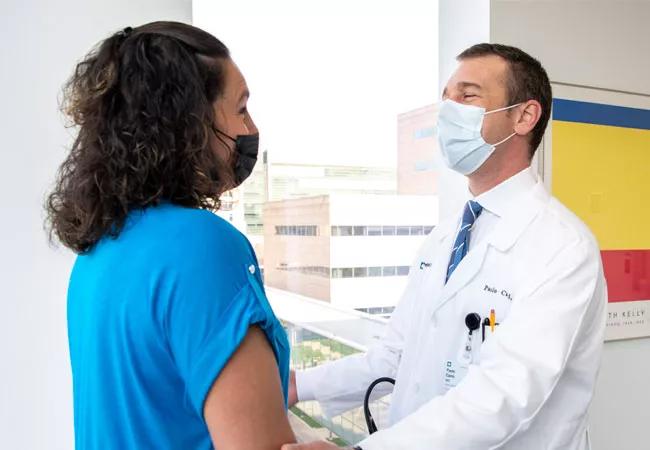
CAR-T cell therapy has shown promise as a treatment for several different types of lymphoma, including in cases that have become resistant to other forms of treatment. Now a new study by Cleveland Clinic physicians has found that it may be effective in relapsed refractory double-hit/triple-hit lymphoma, a subtype that has had few other options.
Advertisement
Cleveland Clinic is a non-profit academic medical center. Advertising on our site helps support our mission. We do not endorse non-Cleveland Clinic products or services. Policy
The retrospective, multicenter study found that around two-thirds of patients who had become resistant to chemotherapy were responsive to CAR-T cell therapy. Patients who received the therapy had improved overall survival after two years. “It’s confirmatory of what we’ve been observing,” said Paolo Caimi, MD, a hematology and oncology specialist at the Cleveland Clinic, and a coauthor of the study. “The benefit of CAR-T cell therapy is extended to the highest-risk patients.
The study, “Improved Survival of R/R Double Hit/Triple Hit Lymphoma in the Era of CD19 Chimeric Antigen T-Cell Therapy,” was presented this month at the annual meeting of the American Society of Hematology.
Double-hit/triple-hit lymphoma is a rare subtype with one of the lowest survival rates and the highest rates of chemotherapy resistance.
“Having new treatments that can control this disease is a real area of need,” Dr. Caimi says. CAR-T cell therapy involves genetically modifying T-cells to target cancer cells. The therapy has been used in patients for around five years. While it has been tested in patients with other lymphoma subtypes, there hasn’t been any data available on its effectiveness in double-hit/triple-hit patients. That’s partly because double/triple-hit lymphoma are rare subtypes and prospective studies including only this subtype can take a very long time to complete, Caimi notes.
For the new study, researchers compared outcomes for 168 patients with relapsed double-hit/triple-hit lymphoma who received CAR-T cell therapy, with 105 patients who were treated before 2018, when the therapy was not yet available.
Advertisement
Patients treated in the CAR-T cell era had significantly higher two-year survival at 43%, compared to 24% of those treated before the therapy was available. “The main takeaway is that these products work well in lymphoma patients with multiple types and subtypes, including refractory double-hit/triple-hit, and it may overcome resistance to chemotherapy treatment,” he says. “The key question now is when do we start to use it.”
While the therapy is now approved as a second-line or third-line treatment for patients with refractory lymphoma, follow-up research should look for ways to identify which patients should receive it as part of an initial therapy strategy, he says, potentially sparing them from ineffective and toxic chemotherapy.
“This prompts us to do more research as a field and try to identify better markers, either in the lab or clinical, as to who’s going to be more sensitive to this treatment rather than chemotherapy,” he says. “We’ve developed the tools, and now we want to be able to predict who’s going to be able to benefit from them the most.”
Advertisement
Advertisement

Higher type 2 immunity observed in persistent CAR T cells

Real-world study shows high response rates that are durable with commercial lisocabtagene maraleucel
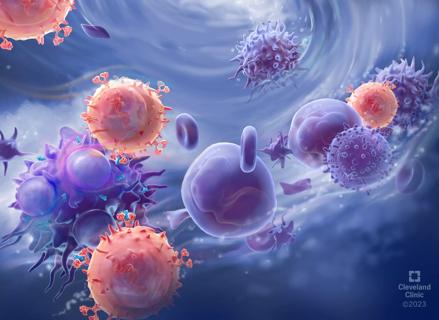
Advancements lead to a new trial involving autoimmune disease

Multiple Cleveland Clinic sites to participate in National Cancer Institute trial comparing treatment regimens for newly diagnosed patients
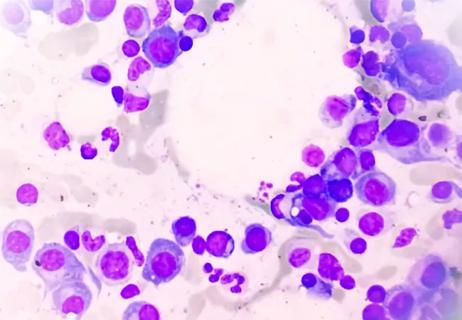
Minimal residual disease testing shows promising results
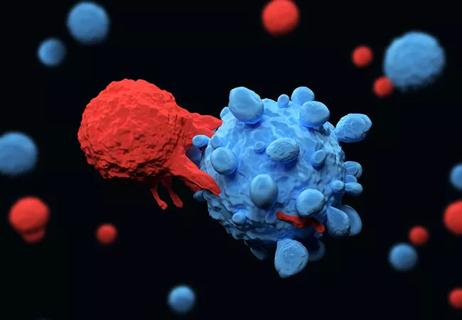
Dispelling myths and sharing practical experiences
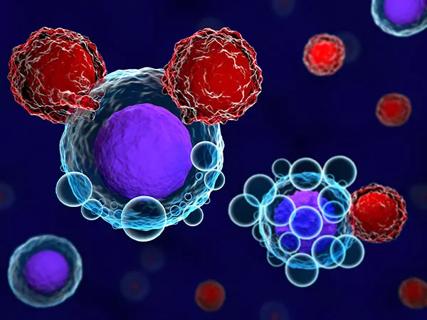
Research indicates strong rationale for expanding trial eligibility criteria

Obstructing key protein allows for increased treatment uptake for taxane chemotherapy